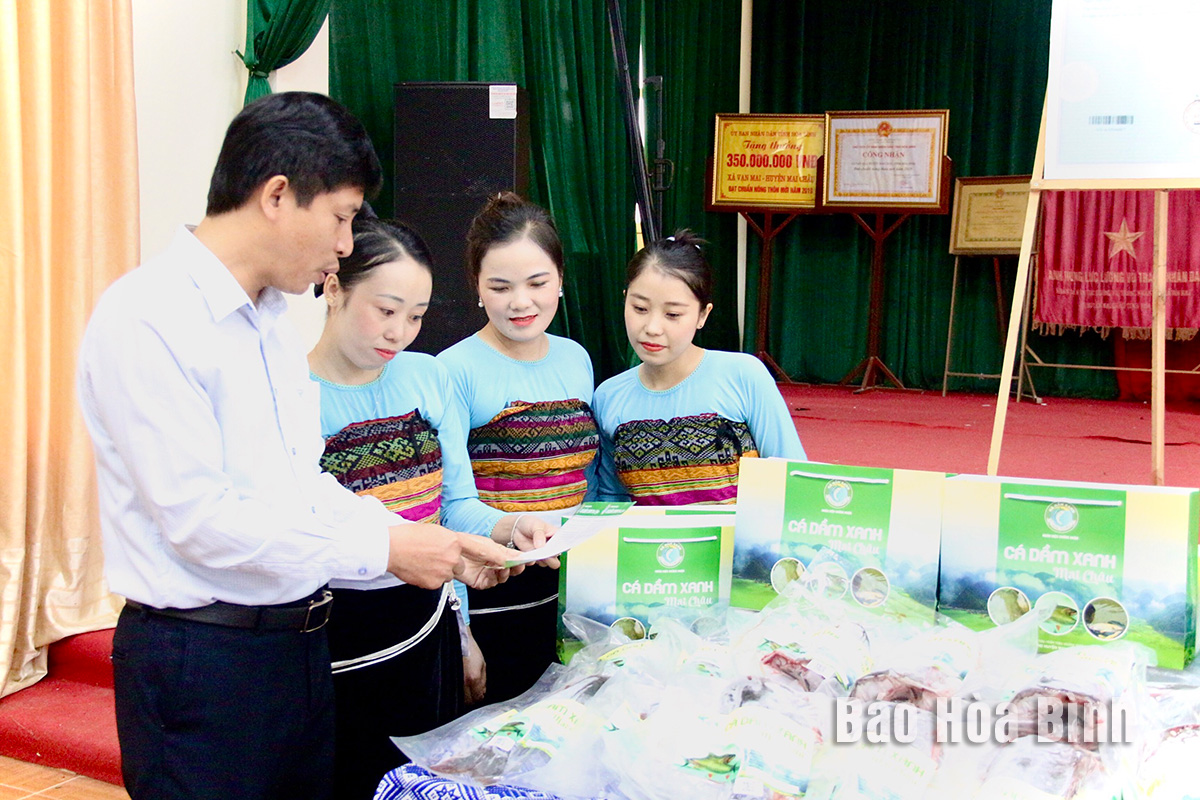



Staff of the Centre for Application and Scientific Information under the provincial Department of Science and Technology guide people on how to introduce and trace the origin of Mai Chau district's Bangana lemassoni fish products.
Despite its reputation as a sought-after delicacy, annual production primarily serves a limited market of local visitors and tourists in Mai Chau.
According to Kha Van Sanh, Chairman of the Van Mai communal People's Committee, ca dam xanh, also known as Bong fish, is a signature specialty of Mai Chau. The fish thrives only in clean water environments, making it unsuitable for cultivation in typical ponds, lakes, or rivers. Although slow to mature, its meat is prized for its exceptional sweetness and flavour, offering significant economic potential. In recent years, local authorities have promoted commercial farming, helping residents gradually improve their incomes.
To bring this unique fish to a broader market, the Mai Chau district People's Committee has partnered with the Centre for Application and Scientific Information under the provincial Department of Science and Technology. This collaboration successfully established the trademark "Mai Chau district’s Bangana lemassoni fish", enhancing its market presence.
Ha Trung Thao, Vice Chairman of the Mai Chau district People's Committee, emphasised the importance of protecting and promoting products with distinctive regional characteristics. By supporting farmers in building certified trademarks, local authorities have expanded the reach of ca dam xanh, boosting its value and contributing to the district's socio-economic and tourism development.
Before the trademark's establishment, farmers faced numerous challenges, including low competitiveness and market instability, noted Tran Dinh Thang, Deputy Director of the Centre for Application and Scientific Information. Despite the fish’s high quality, the lack of branding and organised distribution limited growth. Now, with certification and a clear brand identity, dam xanh fish benefits from improved marketing, traceable origins, and expanded distribution networks.
Kha Van Tu, Chairman of the Van Mai Commune Farmers' Association, shared that since receiving the collective trademark certification, demand for the fish has surged. Although priced between 200,000 and 300,000 VND (7.8–11.8 USD) per kilogram, sales volumes have increased three- to fourfold for households in the commune. Moreover, the customer base has expanded from local residents and restaurants to buyers from other areas, highlighting the growing appeal of this specialty.